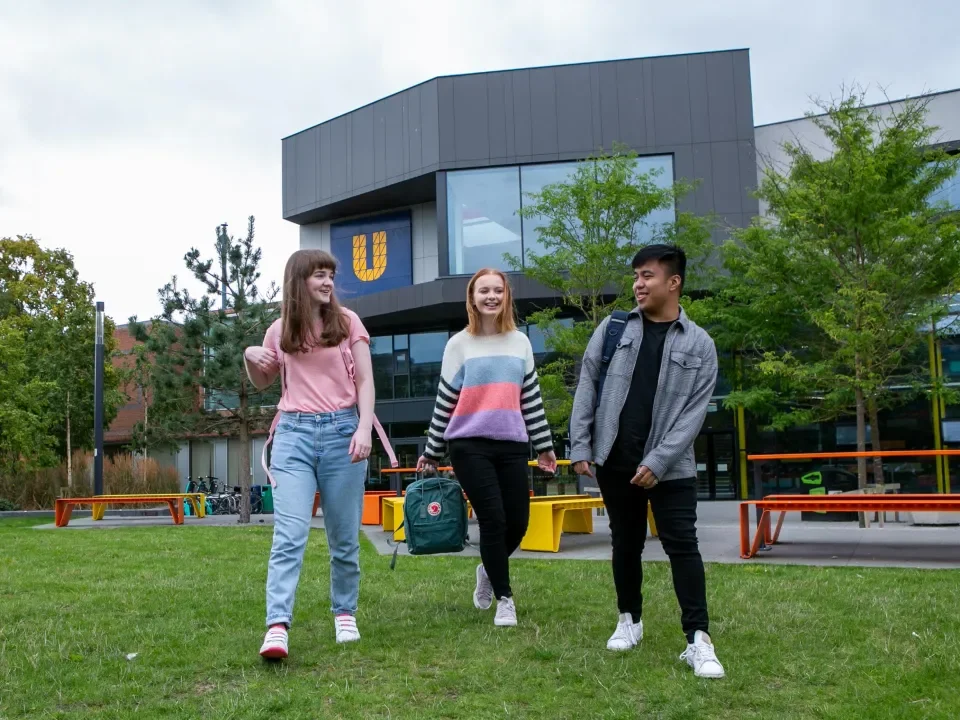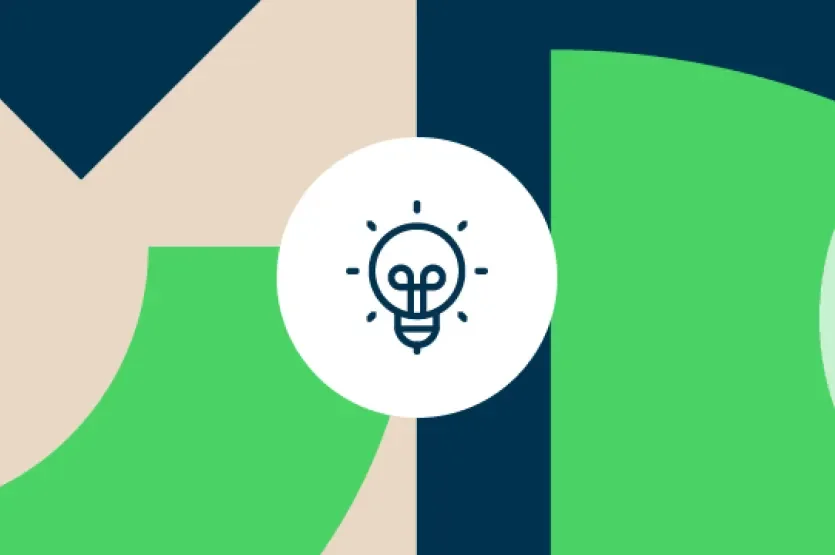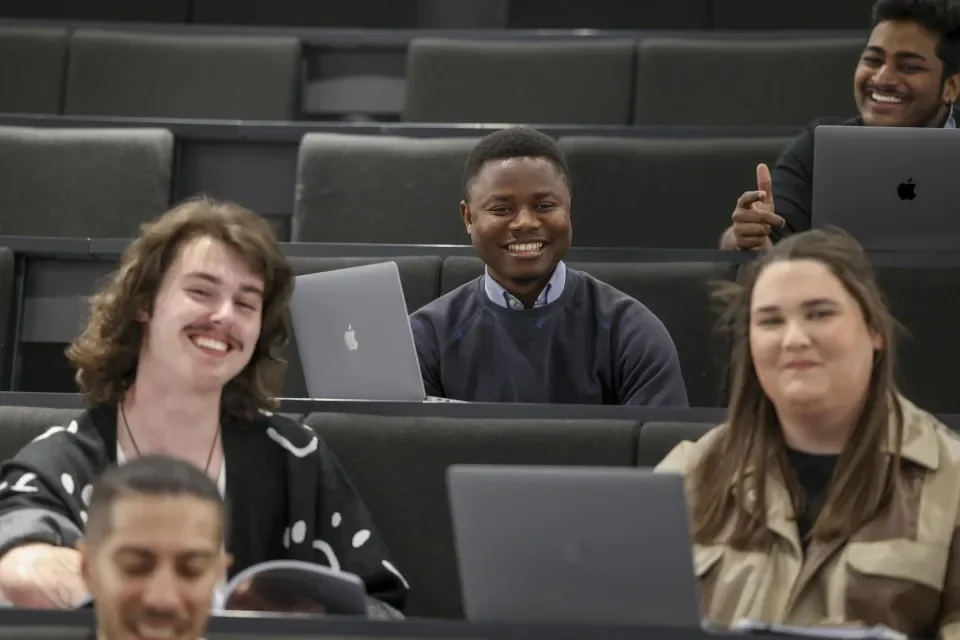Overview
A career in psychology could be perfect for you. This Psychological Society of Ireland-accredited course was the first psychology programme in Ireland to offer a work placement opportunity. In third year, you’ll do an INTRA placement in a clinical, corporate or other environment.
While psychologists differ in their interests and the type of work they do, they all approach the study of behaviour in a scientific way. During the course, you’ll gain knowledge, skills and experience in all core areas in psychology. With a maximum of 40 students in each year group, you’ll benefit from access to academic staff and support as you need it.
Build a toolkit of valuable skills
You’ll also develop visual, written, and communication skills, transferable to many areas of professional work and engagement. These include skills in problem solving, numeracy and statistics, critical, creative and innovative thinking, decision making, communication and leadership, health literacy, organisation, team working and IT.
As a graduate, you may go on to further study in a specialism, such as research psychology, clinical psychology, counselling, education, organisational or occupational psychology, sports psychology or biopsychology. Psychology graduates are among the most sought after in general, so you could also pursue any of a broad and diverse range of roles in the public or private sector.
Why DCU
DCU People

At 17, I wasn’t quite sure what I wanted to do at college, or even where I’d like to go. I wanted to do something academically challenging. Beyond that, I didn't have much direction.
Read more about Dean O’Reilly
Careers & Further Options
Careers
Most students study psychology because they aim to pursue a career as a psychologist.
However, others choose to study psychology because it offers a broad training in a behavioural science, it develops a wide range of valued transferable skills and it can be used as a stepping stone into several other careers.
Studying with us at the School of Psychology opens up a wide range of postgraduate training and career opportunities.
With further professional education and training, one can work as a psychologist in professional settings such as clinical, counselling, organisational, health, educational, sport, forensic or academic settings.
- Assistant psychologist positions
- Marketing
- Management
- Research
- Data analysis
- Human resources
- Health promotion
- Community development
DCU graduates are highly sought after by employers. Our Graduates work in environments ranging from large multinationals to SMEs, family businesses and start-ups across every sector.
DCU Careers Service has a number of learning and development initiatives in place for our students, giving them the skills they need for a successful career path.
Entry Requirements
In addition to the general entry requirements for admission to the university the following entry requirements apply
Minimum of O4 or H6 in Mathematics
In addition to the general entry requirements for admission to the university the following entry requirements apply
GCE A Level D or GCE AS Level C or GCSE C Mathematics
*** New QQI FET Route for entry September 2025 ***
Details of entry requirements per the CAO Alerts list, or available from mid November on cao.ie here
Mature Entry is a competitive process. Applicants must demonstrate:
- a genuine interest in the programme(s) they are applying for
- academic experience and competency in their chosen field of study
- an ability to engage and succeed on the programme
All applicants must complete a statement of interest to be considered for the mature application route.
For further guidance on the mature application process please see the CAO Website
Additional Criteria
This programme requires evidence of competency in Mathematics , which would equate to a O4/H6 or 5N1833 with distinction or 5N18396 with distinction or a pass in 5N0556 Maths for Stem in this subject. This requirement is essential for this programme. Applicants can show their strength in this through formal examinations e.g. school leaving examinations, QQI-FET, access programmes or other third level qualifications. If applicants don’t have any relevant examinations, they may be able to meet the requirements through their work and life experience, applicants must give examples of this experience to demonstrate their competency in these areas in their personal statement.
No Entry Path
International candidates are expected to have educational qualifications of a standard equivalent to those outlined above. In addition, where such candidates are non-native speakers of the English language they must satisfy the university of their competency in the English language. For further information on international applications click here.
Course Structure
- Introduction to Psychology
- Positive Psychology
- Child Development
- Cognition
- Critical thinking, Collaboration and Enterprise Skills
- Social Psychology
- Comparative Evolutionary Psychology
- Philosophy of Psychology
- Personality Psychology
- Psychology Research Skills 1 and 2
Year 1 options
- Introduction to Anthropology
- Introduction to Marketing
- Perception
- Education Psychology
- Sport Psychology
- Biological Psychology 1 and 2
- Psychological Measurement and Assessment
- Health Psychology
- Experimental Analysis of Behaviour
- Psychology Research Skills 1 and 2
Year 2 Options
- Sociology, Health and Illness
- Introduction to Human Resource Management
- Science Communication and Public Engagement
- Sexual Health
- Organisational Psychology
- Freedom and Health
- Working in Psychology
- Cognition across the Lifespan
- Life-Span Development: Adulthood
- Psychology Research Skills 3
- Computer Applications in Psychology Research
- INTRA
Year 3 Options
- ABA Across the Lifespan
- Psychopharmacology
- Psychology, Illness and Disability
- Psychological Health, Difficulties and Disorders
- Social Psychology and Contemporary Issues
- Theoretical Issues and Approaches in Psychology
- Neuropsychology
- Psychology Research Project
Year 4 Options
- Applied Psychology and Work
- Behavioural Neuroscience Methods
- Psychoanalysis
- Law and Neuroscience
- Crime and Psychology
- Psychology of Adolescence
- Psychology of Self-Control
- Counselling and Psychology
- Uaneen Award: DCU’s Leadership and Engagement
Fees and Funding
Fees
How To Apply
Apply through the Central Applications Office (CAO) by 1st February or 1st May
To apply for this programme:
Candidates should apply directly here. Here's a quick step by step guide if you need help with your application.
Please provide
- Academic Transcripts for each and every year of study with English translation, if applicable.
- If applicable, provide evidence of competence in the English language as per DCU entry requirements.
Applications are accepted on an ongoing basis up to 1st July. All Non-EU candidates are advised to apply early, as places are limited.
All mature applicants apply through the CAO by 1st February. For further information and for special application procedures for mature students, please click here
No entry path
Please see Application Procedures or E-mail ugadmissions@dcu.ie.
Candidates submitting EU examination results are required to apply through the CAO at www.cao.ie.
Candidates submitting non-EU examination results are required to apply directly here.
Life On Campus
At DCU, our students can expect a unique campus experience. We are known for our excellent teaching and learning facilities, our active clubs and societies, and our great social and sporting facilities. All this makes DCU an exciting place to be.
DCU has three academic campuses; Glasnevin, St. Patrick’s and All Hallows (both in Drumcondra), all close to Dublin City centre.
They can be reached by public transport, Dublin Bus and Bus Éireann, with our Drumcondra campuses a ten minute walk from Drumcondra Train Station. Glasnevin is a 20 minute walk from St Patrick’s and All Hallows. They are also linked by Dublin Bus.
Each campus has a library (O’Reilly, Cregan and Woodlock Hall), study spaces, restaurants, and on-campus residencies. There are sports facilities on Glasnevin and St. Patrick’s, and there is a dedicated sports campus, St Claire’s, located near Glasnevin on the Ballymun Road.
DCU’s 19,000 students have access to exceptional teaching and learning facilities across our three academic campuses.
These include modern learning theatres, research centres, a new media and TV studio, radio/podcast studios, computer suites and advanced labs in the areas of Languages, Engineering, Physics, Chemistry and Biotechnology, as well as a Sports Performance centre and a training hospital ward. In 2021, we opened our first virtual reality ‘Leadership Lab’, which is located in our Business School.
We continue to improve and update our facilities. For example, construction of a new world-class STEM facility is underway on the Glasnevin campus. With capacity for an extra 3,000 STEM students, this facility will advance DCU’s international reputation for excellence in science and health, computing and engineering disciplines.
Studying in DCU isn’t just about course work. The university is rich in student life and activities.
There are more than 140 clubs and societies for students in DCU, with ‘Clubs & Socs’ days taking place on both the Glasnevin and Drumcondra campuses at the start of the academic year. They span everything from rugby to rock climbing, anime to jazz.
For many students, sport is an important part of the DCU experience. DCU’s Sports Complex boasts a 25 metre swimming pool, fitness centre gym, all-weather pitches and squash courts, as well as soccer, GAA and rugby pitches. DCU Dóchas Éireann, the university’s GAA club, is the largest third level Gaelic Games club in the country. Meanwhile, DCU Athletics has been Ireland’s highest achieving university club for many years. And DCU has dozens of other clubs to get involved in, from Archery to Weightlifting.
The Glasnevin campus is home to our purpose built, state-of-the-art student centre, The U, which serves the needs of a rapidly growing student body. Here, you will find the Student Leadership and Lifeskills Centre, performing arts and cultural spaces for students and the wider community, and the Entrepreneurship and Innovation Hub. Also located on our Glasnevin campus is The Helix, our renowned performing arts centre.
On our St Patrick’s campus, we have the Java Student Hub, a vibrant, warm and welcoming space where students can meet for coffee, play music, use the projector to watch events, or just relax. The walls of the Java Hub were designed based on the cultural history of St Patrick’s Campus, including the special references to the notable sporting history and history of the arts.
We have a number of academic, professional and social supports for students.
Student Advice & Learning Skills Centre - Offers a wide range of supports and services to students and advice
The Writing Centre - drop-in writing workshops for students through the academic year
Maths Learning Centre - provides maths support for students of all ability levels with maths modules
Student Learning - facilitate the transition from passive to active learning for students at DCU, by teaching study skills, nurturing critical thinking and building student confidence.
Careers work with students to help them on their professional journey into graduate employment.
Our student support team offers a comprehensive support programme, helping students make that all important transition into university life and focusing on building confidence and skills which are key to success at third level.

DCU Glasnevin Campus
FAQs
How many hours of contact time do you have on the undergrad psychology course?
Typically you would have 5 modules per semester with 24 hours of contact for each module.
What can I do after studying psychology?
There are a variety of career options for psychologists and they work in a variety of settings. However, after you finish your degree you will need to pick an area to work in and do further training to practice as a psychologist. Once this training is done, you can work in areas such as clinical, counselling, organisational (work place), educational, research or consulting. Just to note, given Psychology gives you such a broad based of transferable skills (e.g., analytical, communication based etc) our graduates are highly sought after in a variety of areas and on many graduate programmes to large employers
Is DCU all one campus?
DCU is a multi campus university - the Glasnevin, St Patrick's and All Hallows campuses. The St Patrick's campus is where the Education courses are taught and some of the subjects from the BA Joint Honours degree. There is a 20-25 minute walk between the campuses but there are buses and bikes available to go between them also.
Click here to see maps of all of our campuses
If I'm studying on the St Patrick's campus, can I use the library and sports centre on the Glasnevin campus?
Yes, all facilities such as sports and accommodation are open for all DCU students to avail of.
Are there libraries in DCU and if they have wifi and work stations?
We have a brand new state of the art four floor library on our St. Patrick's Campus which complements the existing library on the Glasnevin campus. There is free wifi, work stations as well as desktop computers.
Does DCU provide accommodation?
DCU does have on-campus accommodation for undergraduate and postgraduate students, and you can find out more and apply via the Accommodation Office webpage.








